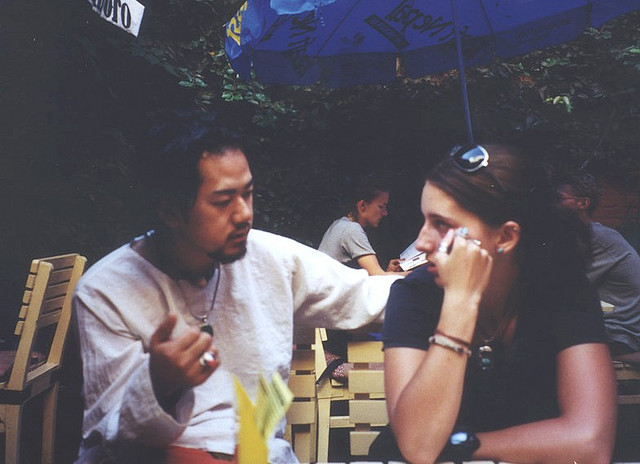
As an intuitive counselor and life coach, I’ve probably read about almost any relationship scenario imaginable.
One thing shines though: that good relationships don’t happen by accident, they happen by love, commitment and conflict. Yes, conflict is a key part of a healthy relationship.
I like to think of conflict as cow manure in your garden.
It stinks and isn’t glamorous or fun to work with. Skip the fertilizing, and the garden won’t grow. Yet if we attempt to grow a garden in a pile of fresh manure, we’ll have a bed of dead plants. The same rules apply in a relationship. If we avoid conflict, the relationship doesn’t thrive. On the other hand, approach conflict in the wrong ways and the relationship will be full of instability that leads to an unbalanced and unhealthy relationship. How we approach conflict makes all the difference between resolution and resentment.
The best relationships communicate their concerns and problems with very simple, but challenging methods.
I like to call it fighting with compassion.
Imagine this: In a fictional situation, we have two characters—Jane, and John. They have a great relationship and work well together, but sometimes struggle with the small stuff. John decides to surprise Jane with her favorite meal at the end of a long, very hard work week for them both. This dish isn’t an easy meal and it requires a good amount of time and effort for him to make. Just as dinner is ready, he receives a call from Jane. She is stuck at work, and won’t be home for a few hours. How would you react?
I don’t know about you, but my narrative would be that my partner doesn’t appreciate me enough to let me know that they’d be working late. I would fume all night until I was a giant ball of rage. I would be pissed off and hurting.
It’s okay to feel this way and it’s important to take ownership of these emotions before discussing it with a loved one. Starting a conversation with this mindset would lead to a hostile shouting match, not a productive conversation. I imagine almost all of us have fought like this—it’s considered acceptable in our culture. But, it’s a total cop out. It requires no work and also more importantly, no risk. Rage is an important part of the healing process, but we should not aim the rage at a loved one.
Find another place to work through it.
I often write out what I’m feeling before approaching my partner. It gives me a place to fume and work things through. When this approach doesn’t work, I reach out to a trusted life coach. I have clients who write poetry, or go for a walk to fume and talk to themselves until they feel calm. It’s possible to do this work with a friend, but it requires a friend who is willing to hold us accountable.
It’s important to make sure that we are working through the emotions, not building on the anger. Keep in mind, our brains are great story-tellers, and they don’t always tell us a true story.
Once we’ve sorted through our emotions, a good starting point is blame the situation, or your partners actions rather than them directly.
An example of this would be “It upsets me when you do XYZ” rather than, “I hate that you do XYZ.” Explain how things made you feel without attacking your partner. Another good example for our scenario would be: “I know you’ve been working really hard this week and I wanted to surprise you with this really nice meal. When you didn’t come home, I felt like you didn’t value me enough to call sooner and let me know you had to work overtime, and I’m feeling hurt and angry right now.”
The important part of this style of conflict resolution is that you are talking about and owning up to what you are feeling and what the narrative of the story is. This approach allows us to express our emotions in an open manner without directly blaming your partner.
I believe the reason this works is because when we approach the issue with an open heart, it switches the mindset from defensiveness to a place of concern. This approach only works if all parties are ready and willing to listen, take some risks and move out of their comfort zone.
This work isn’t easy—it takes hard work and practice. It’s harder for those of us who didn’t come from a family that modeled these principles. Discomfort is a good indicator that we’re heading in the right direction. Emotional risk is a requirement to having a healthy relationship. There is no way around it, no short cuts. Remember that change can be intimidating. If the relationship has been stale for a long time, this change may be seen as a trap and not a positive change.
Don’t give up if this approach doesn’t work right away; it will take time and work. If trust has been seriously broken, help from a therapist or other professional may be needed.
I can’t promise that this work will lead to the relationship of your dreams, but I can promise that it’s a step in the right direction and an absolute requirement for a fulfilling relationship.
Author: Matt Allen
Image: Heather Thorkelson/Flickr
Editor: Catherine Monkman










Read 0 comments and reply